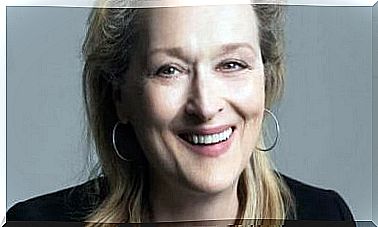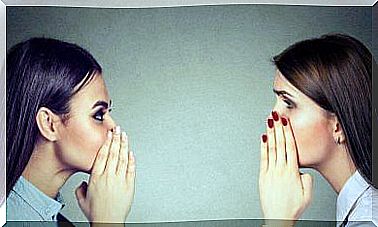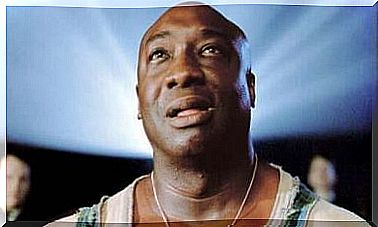Why Some People Do Not Admit Their Mistakes
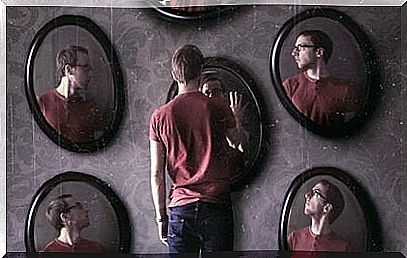
As Alexander Pope once said: “Making mistakes is human; to forgive is divine ”. But we live in a time of obvious perfection. Nowadays, many people do not admit their mistakes. They do not like to admit that they can be wrong. In addition, politicians do not take responsibility for their mistakes and institutions close their eyes to their shortcomings.
Why is it so difficult for people to admit their mistakes? A study by Ohio State University showed that people are more likely to apologize for something they have done than for them to have the courage to admit a mistake.
Psychologists Roy Lewick and Leah Polin discovered that it is easier for people to say “I’m sorry if I offended you” than to say “You are right, I made a mistake”. With the former excuse, the goal is to fix the emotional aspect without really taking full responsibility, as opposed to what happens when someone openly admits that they were wrong.
It is not easy to admit to others that you are not perfect. But the familiar desire to appear flawless, innocent and extremely effective can create very strict and unhealthy situations. It can be easy to forget that happiness is not about being perfect. It’s about being human!
In the end, it is actually an exceptional opportunity to grow and improve as a human being by acknowledging their mistakes.

People who do not acknowledge their mistakes first make us feel frustrated. Then we may try to make them understand our point of view, but when that does not work, we give up. This is because these people have such rigid personalities and such poor social skills that we become aware that it is not worth letting ourselves be discouraged because of them.
Some time ago, the New York Times published an interesting article on this very topic. Paul Krugman, a professor at Princeton University , pointed out that we live in a world with an epidemic of infallibility. This can be clearly seen in politicians who desperately want to show a picture of absolute perfection.
Acknowledging one’s mistakes and taking responsibility for bad decisions is a red line that no one wants to cross. This is mainly due to the traditional idea that acknowledging mistakes is a sign of weakness. And in a world characterized by constant uncertainty, showing weakness is associated with something negative.
In addition to this well-known social scenario, it is also interesting to observe the people who are closest to us and who also do not admit their mistakes. Why do they behave that way?
Narcissism
Brunel University in London conducted an interesting study where they analyzed different personalities and how people interacted with social media. Narcissists were those who were constantly updating their achievements and strengths.
But this type of personality, which is characterized by a very positive self-image, very rarely allows themselves to admit that they have done something wrong. Doing so constitutes a direct violation of their expectations of themselves. They will always prefer to discover the shortcomings of everyone else.

Personal responsibility
Personal irresponsibility is related to emotional immaturity and lack of social skills. Thus, people who do not acknowledge their mistakes lack the essential socializing abilities.
“If I do not take responsibility for my mistakes, I assume that they do not exist and that my actions have no consequences. That is why I am capable of everything. ” This personal focus leads us to inevitable failure and misfortune.
Defense mechanisms
We all make mistakes. When we do, we have two options. The first and most reasonable thing is to acknowledge that we failed and take responsibility. The second is to refuse and apply a defense mechanism. Cognitive dissonance is definitely more common: someone chooses to ignore or not accept two conflicting situations so that their identity remains intact.
For example, an article published in the European Journal of Social Psychology pointed to something quite interesting. People who chose not to take responsibility for their mistakes believed that it made them stronger, and that they had more power over others and themselves. Therefore, they are aware that they made a mistake and that there is cognitive dissonance, but they choose to silence it to protect their ego.
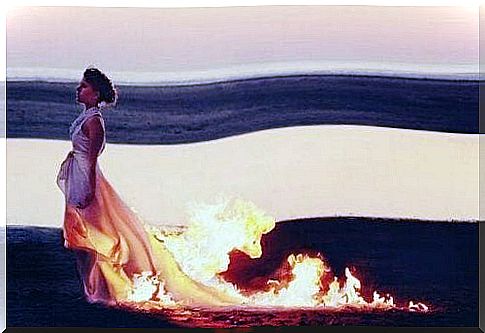
People who do not acknowledge their mistakes use many psychological strategies to carelessly avoid all forms of responsibility. Trying to try to correct them and get them to capture their reason is definitely not easy. However, this does not mean that it is impossible. It’s never too late to step down from the pedestal, be more human and acknowledge our own mistakes in order to grow.


